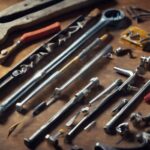- 7 Top Flite Golf Clubs XL for Improved Performance - September 28, 2024
- Top Flite Golf Clubs: Top 5 Reasons to Choose Them - September 28, 2024
- Top 3 Golf Club Fitters for a Perfect Swing - September 28, 2024
You're looking for the top epoxies for golf clubs, and you need a reliable bond between the shaft and head. 3M DP460 and GolfWorks max strength 24 hour epoxy offer high lap shear strength and durable connections. JB Weld steel reinforced epoxy provides a strong and flexible bond, while 3M 8410NS boasts high-performance properties with a 10:1 ratio and glass beads. For graphite shafts, consider 3M DP8410NS, GolfWorks max strength 24 hour epoxy, or Brampton Pro Fix epoxy. Now, explore the specific characteristics and application tips to find the perfect epoxy for your golf club assembly and repair needs.
Key Takeaways
- 3M DP8410NS and GolfWorks max strength 24 hour epoxy are top choices for graphite shaft bonding, offering high lap shear strength and durability.
- For re-shafting golf clubs, consider 3M DP8410NS, GolfWorks max strength 24 hour epoxy, and JB Weld steel reinforced epoxy for strong and flexible bonds.
- High-temperature resistance epoxies like 3M DP8410NS and No Sag (NS) epoxy are ideal for golf club shafting, withstanding temperatures up to 300°F (149°C).
- Brampton Pro-Fix Quick Cure Golf Epoxy and GolfWorks 24-hour epoxy are budget-friendly options with strong bonds and adequate quantity, suitable for quick repairs and assembly.
- When selecting an epoxy for custom golf clubs, prioritize high-impact resistance, flexibility, chemical resistance, and low viscosity for a strong and consistent bond.
Top-Rated Epoxy Brands
When selecting the right epoxy for your golf club assembly, you'll want to explore top-rated brands that deliver reliable bonding and exceptional performance.
Among the best epoxy options, 3M DP460 has been upgraded by some users, offering high lap shear strength for reliable bonding. GolfWorks max strength 24 hour epoxy is another popular choice, providing a durable connection between the shaft and club head. JB Weld steel reinforced epoxy has also been used without issues, offering a strong and flexible bond.
If you're looking for a high-performance epoxy, 3M 8410NS is a recommended option, boasting a 10:1 ratio and glass beads for excellent temperature resistance and lap shear strength.
Alternatively, Infinity Bond EP 420 offers cost savings without sacrificing quality, providing excellent shear and peel strength at a lower price point than 3M Scotch-Weld DP420.
Epoxy Strength and Durability
In selecting an epoxy for your golf club assembly, you need to weigh the epoxy's strength and durability, as they directly impact the club's performance and longevity. A strong and durable epoxy guarantees that the clubhead, shaft, and grip remain bonded together, even under intense forces and repeated use.
When evaluating epoxy strength, consider the following key factors:
- Lap shear strength: Measures the epoxy's ability to withstand forces applied parallel to the bond line.
- Tensile strength: Represents the epoxy's resistance to forces applied perpendicular to the bond line.
- Impact resistance: Determines the epoxy's ability to absorb shocks and vibrations without failing.
- Flexural strength: Assesses the epoxy's capacity to withstand bending and twisting forces.
- Adhesion: Evaluates the epoxy's ability to bond with various materials, including metals, composites, and plastics.
Quick Cure Time Options
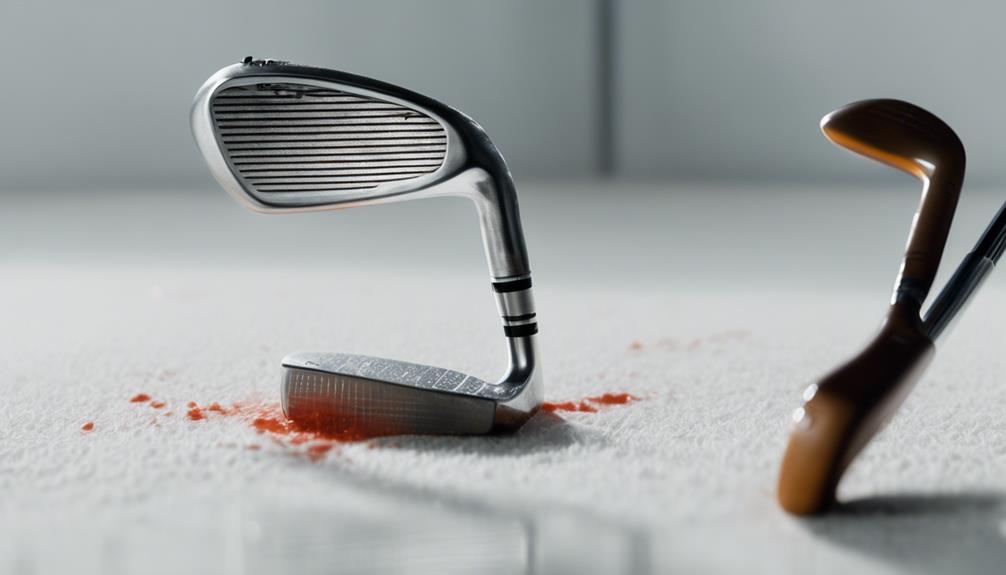
When you're working on a tight deadline, you need epoxies that can keep up with your pace.
That's where quick cure time options come in, offering fast drying formulas, rapid bonding agents, and instant repair solutions that can get your golf clubs back in action quickly.
Fast Drying Formulas
You can turn to fast-drying formulas, like those offered by Brampton, The GolfWorks, 3M, JB Weld, and Golfsmith, when you need a quick cure time for golf club assembly and repair. These epoxies are designed to provide a strong bond in a shorter amount of time, making them ideal for quick repairs or when you're working on a tight deadline.
Some fast-drying formulas worth exploring include:
- Brampton PRO-FIX Quick Cure Golf Epoxy: 5-minute work life, 24-hour cure time
- The GolfWorks Epoxy: 30-minute gel time, 24-hour cure time
- 3M Scotch-Weld DP420 epoxy: 10-minute work life, 24-hour cure time, high lap shear strength
- JB Weld Steel Reinforced Epoxy: 5-minute work life, 24-hour cure time, strong and durable bond
- Golfsmith 24 hr (black) shafting epoxy: 10-minute work life, 24-hour cure time, suitable for golf club assembly and repair
These fast-drying formulas are perfect for golf club assembly and repair when you need a quick turnaround. With their fast curing times, you can get back to playing your best game in no time.
Rapid Bonding Agents
For rapid bonding agents with quick cure time options, consider epoxies that prioritize speed without sacrificing strength, as these formulas can substantially reduce downtime and get your golf clubs back in play quickly.
When you need a fast bond, you can rely on epoxies like Brampton PRO-FIX Quick Cure Golf Epoxy, which boasts a 5-minute work life and a 24-hour cure time.
GolfWorks Epoxy is another option, offering a 30-minute gel time and a 24-hour cure time for efficient bonding and assembly.
If you prefer a popular choice among golf club assemblers and repairers, the 3M DP460 epoxy is a great pick, with a 10-minute pot life and a 24-hour cure time.
You can also consider the Brampton Pro-Fix Epoxy, which has a 20-minute work life and a 24-hour cure time, or the 3M 8410NS epoxy, featuring a 10-minute pot life and a 24-hour cure time, along with a 10:1 ratio and glass beads for added strength.
These quick cure epoxies provide a strong and durable bond, getting your golf clubs back in action in no time.
Instant Repair Solutions
What sets instant repair solutions apart is their ability to drastically reduce downtime, getting your golf clubs back in play quickly with epoxies that boast impressively short cure times. When you're in the middle of a game or need to get your clubs ready for a tournament, every minute counts. That's where quick cure epoxies come in.
Brampton PRO-FIX Quick Cure Golf Epoxy has a 5-minute work life and 24-hour cure time, making it suitable for quick repairs.
The Golf Works High-Strength Epoxy has a 30-minute gel time and 24-hour cure time, allowing for fast and reliable bonding.
GolfWorks Epoxy has a quick cure time of 30 minutes to an hour, making it ideal for fast-paced club assembly and repair.
Brampton Pro Fix epoxy has a lap shear strength of 3200 psi and can be broken down for shaft pull, making it a reliable choice for quick repairs.
Brampton Pro Fix quick cure has a 5-minute work life and can be purchased on Amazon with quick shipping, making it a convenient option for instant repair solutions.
With these quick cure epoxies, you can get back to your game in no time, without sacrificing the quality of your repairs.
Easy Application Epoxies
When you're looking for epoxies that simplify the golf club assembly and repair process, you'll want to focus on formulas that offer quick fix solutions, ensuring a strong bond with minimal hassle.
You'll also benefit from smooth bonding agents that eliminate air pockets and bubbles, resulting in a clean, professional finish.
Quick Fix Formulas
You need epoxies with rapid application and cure times for quick repairs and assembly, which is where quick fix formulas come into play. These epoxies are designed to get the job done fast, without sacrificing bond strength or durability.
When it comes to quick fix formulas, explore the following top options:
- Brampton PRO-FIX Quick Cure Golf Epoxy has a 5-minute work life and a 24-hour cure time, making it ideal for quick repairs and assembly.
- The GolfWorks Epoxy has a 30-minute gel time and a 24-hour cure time, allowing for a strong bond between the shaft and club head.
- 3M DP460 Epoxy Adhesive has a 10-minute pot life and a 24-hour cure time, making it suitable for applications requiring high lap shear strength.
- Brampton Pro-Fix Epoxy has a longer work life and cure time, making it more suitable for professional use and larger-scale projects.
- GolfWorks Tour Set Epoxy has a 24-hour cure time and is designed for bonding graphite shafts to metal hosel adapters, making it a popular choice among golf club manufacturers.
These quick fix formulas will help you get back on the course in no time, with a strong and durable bond that will withstand the demands of the game.
Smooth Bonding Agents
For golf club assembly and repair, smooth bonding agents take center stage, offering ease of application and a strong, reliable bond that can withstand the rigors of the game.
When it comes to shafting epoxy, you'll want an adhesive that provides a seamless bonding experience. GolfWorks 2-part shafting epoxy has been an industry standard for over 40 years, and its easy-to-mix formula makes it a popular choice among golf enthusiasts.
Another popular option is the 3M 8410NS epoxy, which features a 10:1 ratio and glass beads inside for a smooth and reliable bond.
If you're looking for a strong and durable bond, the 3M DP460 epoxy is a great upgrade, providing a consistent application that's hard to beat.
Additionally, the JB Weld steel reinforced epoxy offers a strong bond with its easy-to-apply formula.
With these smooth bonding agents, you can facilitate a secure connection between your club's shaft and head, giving you the confidence to take your game to the next level.
Fast Drying Solutions
Fast drying epoxies revolutionize golf club assembly and repair by streamlining the bonding process, allowing you to quickly get back to the game. With fast drying times, you can complete projects efficiently and effectively, without sacrificing strength or durability.
These top fast drying epoxies for golf clubs:
- 3M DP460 epoxy: Offers a fast drying time of 24 hours and high lap shear strength, making it a popular choice for golf club assembly and repair.
- GolfWorks max strength 24 hour epoxy: Specifically designed for bonding graphite shafts to metal hosel adapters, with a fast cure time.
- Brampton PRO-FIX Quick Cure Golf Epoxy: Boasts a 5-minute work life and a 24-hour cure time, ideal for quick repairs and assembly.
- JB Weld steel reinforced epoxy: Known for its high strength and durability, with a fast drying time, suitable for bonding metal and graphite components.
- 3M 8410NS epoxy: Features a 10-minute pot life and a 24-hour cure time, with high lap shear strength and glass beads for reliable bonding.
These fast drying epoxies guarantee that you can get back to the game quickly, without compromising on strength or performance.
Best Epoxies for Graphite Shafts
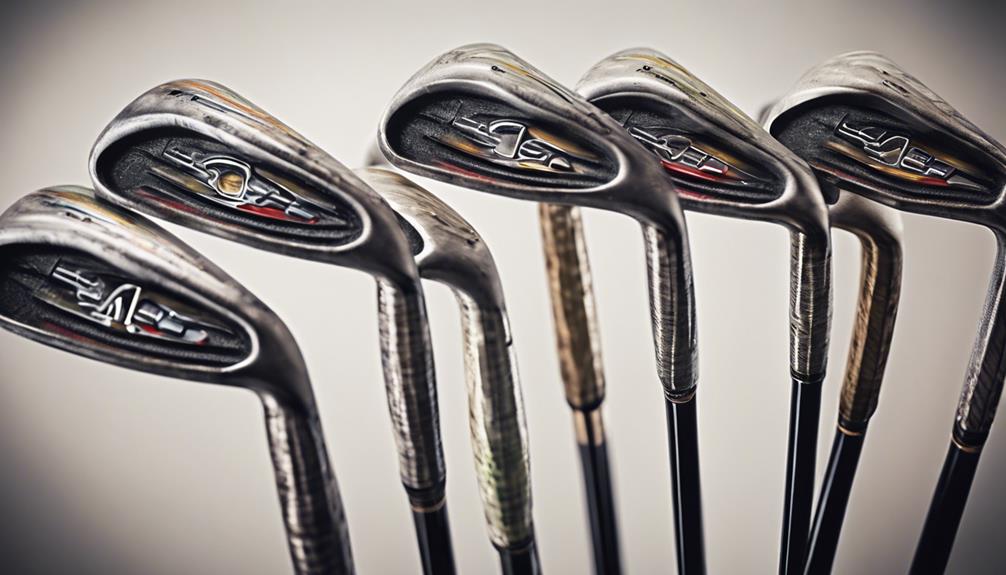
When bonding graphite shafts, golf club manufacturers and enthusiasts alike rely on a select group of epoxies that have proven themselves capable of withstanding the demands of the game. You need an epoxy that can handle the high tensile strength and flexibility required for graphite shafts. The following are top options for bonding:
| Epoxy | Ratio | Lap Shear Strength (psi) |
|---|---|---|
| 3M DP8410NS | 10:1 | – |
| GolfWorks max strength 24 hour | – | – |
| Brampton Pro Fix | – | 3200 |
| 3M acrylic adhesive | – | – |
| JB Weld steel reinforced | – | – |
These epoxies have been battle-tested and proven to provide a strong and durable bond for graphite shafts. The 3M DP8410NS, with its 10:1 ratio and added glass beads, is a popular choice among manufacturers. The GolfWorks max strength 24 hour epoxy has also been used successfully for graphite shaft bonding. If you're looking for high tensile strength, the Brampton Pro Fix epoxy is a great option, with a lap shear strength of 3200 psi. Whatever epoxy you choose, make sure it's up to the task of withstanding the rigors of the game.
High-Temperature Resistance Epoxies
As you explore high-temperature resistance epoxies for golf club manufacturing, you'll want to focus on heat-defying bonding agents that can withstand extreme temperatures.
To confirm the epoxy you choose meets your requirements, you'll need to conduct thermal stability tests to evaluate its performance under heat.
Heat-Defying Bonding Agents
In golf club manufacturing, you require heat-defying bonding agents that can withstand extreme temperatures, ensuring a strong and durable bond between the shaft and club head. This is where epoxy adhesives come into play, providing a reliable solution for high-temperature applications.
When it comes to heat-defying bonding agents, you have several options to choose from:
- 3M DP8410NS epoxy is a recommended choice, offering high-temperature resistance up to 300°F (149°C) with a 10:1 ratio and glass beads inside.
- 3M acrylic adhesive is another tenacious and temperature-resistant option, making it suitable for high-temperature applications in golf club shafting.
- No Sag (NS) epoxy is a high-temperature-resistant adhesive that can withstand extreme temperatures, ensuring a strong bond between the shaft and club head.
- 3M 8410 has a 10-minute pot life and is suitable for heat curing, allowing for a strong and durable bond in high-temperature environments.
- Avoid using DP810, as it may not be suitable for high-temperature applications, highlighting the importance of choosing a heat-defying bonding agent specifically designed for golf club shafting.
Thermal Stability Tests
You can confirm the high-temperature resistance of epoxies by subjecting them to thermal stability tests, which assess their ability to maintain bond strength under extreme heat.
These tests are vital in golf club manufacturing, where high-temperature resistance is essential to guarantee a strong bond between the shaft and club head.
When evaluating epoxies for thermal stability, you'll find that some products stand out from the rest.
For instance, 3M 8410NS epoxy has demonstrated excellent thermal stability, withstanding temperatures up to 300°F (149°C) without compromising its bond strength.
Similarly, DP460 and DP420 epoxies from 3M have also shown high thermal resistance, making them suitable for high-temperature applications.
GolfWorks Max Strength 24 Hour epoxy has been found to maintain its adhesive properties up to 250°F (121°C), while JB Weld steel reinforced epoxy has been tested to withstand temperatures up to 220°F (104°C) without significant degradation of its bonding strength.
Long-Lasting Bonding Solutions
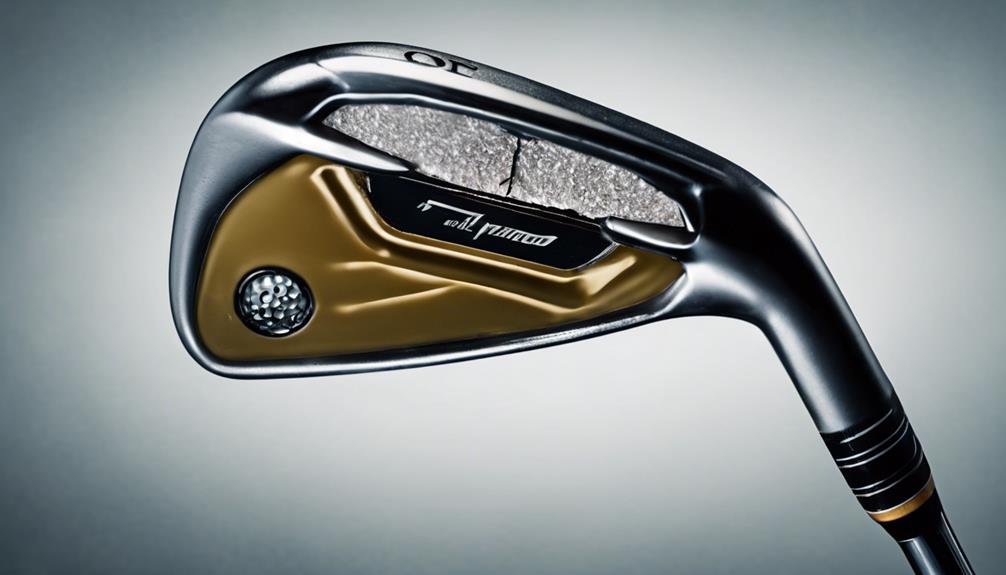
When selecting an epoxy for golf club shafting, golfers require a bonding solution that can withstand the rigors of repeated swings and harsh environmental conditions, making long-lasting bonding solutions a critical component of a successful build. You need an epoxy that provides exceptional bond strength to maintain your club's performance consistently throughout its lifespan.
To achieve this, consider the following epoxies that have proven their reliability:
- 3M DP460 epoxy, with its high lap shear strength of 4500 psi, making it a reliable choice for golf club shafting.
- GolfWorks max strength 24-hour epoxy, known for its strong bond and durability.
- JB Weld steel reinforced epoxy, a popular choice for its high strength and temperature resistance.
- 3M 8410NS epoxy, recommended for its high lap shear strength and temperature resistance due to its 10:1 ratio and glass beads.
- The GolfWorks Tour Set epoxy, offering a strong bond and long-lasting durability.
These epoxies have been tested and trusted by many golfers, providing the bond strength and reliability you need to take your game to the next level.
Epoxies for Re-Shafting Golf Clubs
Selecting the right epoxy for re-shafting golf clubs is vital to guarantee a strong, reliable bond that withstands the stresses of golf swings and impacts.
You'll want an epoxy that provides a robust bond between the shaft and club head, verifying your club performs consistently.
For re-shafting, you can't go wrong with 3M DP8410NS epoxy, which boasts a 10:1 ratio and glass beads for added strength and durability.
Another popular option is GolfWorks max strength 24 hour epoxy, a favorite among golf club builders and repairers.
JB Weld steel reinforced epoxy is also a great choice, offering a strong and flexible bond that can withstand the rigors of the game.
When choosing an epoxy, consider factors like lap shear strength, temperature resistance, and curing time to guarantee a durable bond.
Don't forget to properly prepare and clean the shaft and club head, as contaminants or residue can compromise the bond between the epoxy and materials.
With the right epoxy and proper preparation, you'll be on your way to a strong, long-lasting bond that will elevate your game.
Professional-Grade Adhesives
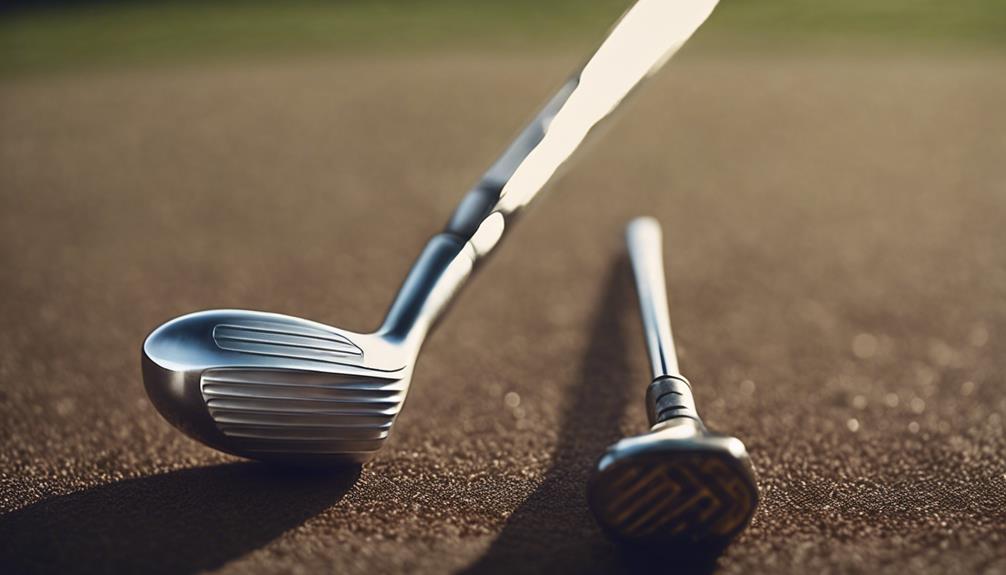
For re-shafting golf clubs, professional-grade adhesives like 3M DP8410NS, 3M acrylic adhesive, and No Sag (NS) epoxy offer superior performance, boasting high lap shear strength and temperature resistance to provide a robust bond between the shaft and club head.
When it comes to club repair, you need an adhesive that can withstand the demands of the game.
3M DP8410NS is a recommended epoxy with a 10:1 ratio and glass beads inside, offering high lap shear strength and temperature resistance.
3M acrylic adhesive is a tenacious and temperature-resistant option, making it suitable for high-temperature applications.
No Sag (NS) epoxy is a high-temperature-resistant adhesive, ideal for use in golf club shafting where temperature resistance is vital.
GolfWorks Tour Set epoxy is a solid choice for many builds, offering a reliable bond and ease of use.
Infinity Bond EP 420 is a cost-effective alternative to 3M Scotch-Weld DP420, providing excellent shear and peel strength at a lower price point.
These professional-grade adhesives provide a strong and durable bond, giving you the confidence to take your game to the next level.
Budget-Friendly Epoxy Options
If you're looking for a cost-effective solution to bond your golf club shafts, budget-friendly epoxy options can provide a reliable and strong bond without breaking the bank.
GolfWorks 24-hour epoxy is a great choice, offering a strong bond and adequate quantity for golf club shafting at an affordable price. Another option is Brampton Pro-Fix Quick Cure Golf Epoxy, which boasts a 5-minute work life, quick repairs, and a robust bond, making it suitable for golf club assembly and repair.
For a more cost-effective solution, consider The Golf Works High-Strength Epoxy, which provides a strong bond, user-friendly cartridge design, and a 24-hour cure time, making it ideal for golf club manufacturers and repair shops.
If you're looking for a more affordable alternative to 3M Scotch-Weld DP420, Infinity Bond EP 420 is a great option, offering excellent shear and peel strength at a lower price point, suitable for small-joint assembly in golf club manufacturing.
Additionally, 3M DP8410NS is a recommended epoxy with a 10:1 ratio and glass beads inside, providing a strong bond and high lap shear strength, available at a competitive price point for golf club assembly and repair.
Epoxies for Custom Golf Clubs
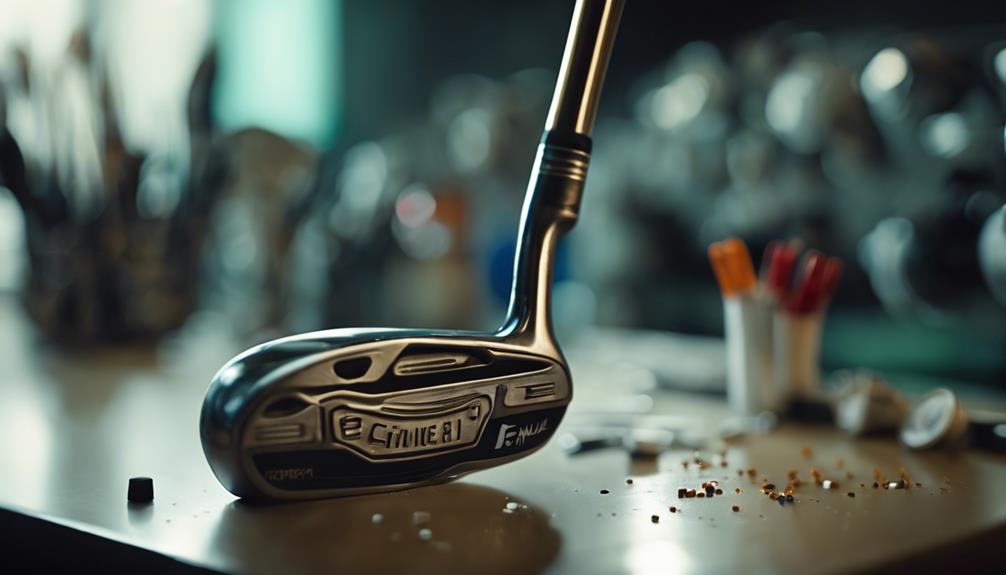
When building custom golf clubs that require unique shaft and clubhead combinations, you'll want to choose an epoxy that offers exceptional flexibility and impact resistance. This is essential because custom golf clubs are designed to meet specific performance requirements, and the epoxy must be able to withstand the stresses and strains of repeated use.
When selecting an epoxy for your custom golf clubs, consider the following key factors:
- High-impact resistance: The epoxy should be able to absorb shock and vibrations without compromising the bond between the shaft and clubhead.
- Flexibility: A flexible epoxy will help to reduce the risk of cracking or shattering under impact.
- Chemical resistance: The epoxy should be resistant to corrosion and degradation from exposure to environmental factors such as moisture and sunlight.
- High-temperature resistance: Custom golf clubs may be subjected to high temperatures during use, so the epoxy should be able to maintain its bond integrity in these conditions.
- Low viscosity: A low-viscosity epoxy will flow more easily and evenly, making it easier to achieve a strong, consistent bond.
Shaft Bonding Essentials
When building custom golf clubs, establishing a strong and durable bond between the shaft and hosel adapter is essential, which is why selecting the right epoxy and following proper bonding procedures are vital shaft bonding essentials. You'll want to choose an epoxy with a minimum of 3000 psi lap shear strength to guarantee a reliable connection.
Key considerations for shaft bonding:
| Epoxy | Lap Shear Strength | Temperature Resistance |
|---|---|---|
| 3M DP8410NS | 3000+ psi | Excellent |
| GolfWorks Max Strength | 3000+ psi | Good |
| Generic Epoxy | <3000 psi | Poor |
| Unknown Epoxy | Unknown | Unknown |
| DIY Epoxy Mix | Variable | Variable |
Proper preparation and cleaning of the shaft tip and hosel ID are also vital for a strong bond. This includes removing old epoxy, sanding, and cleaning with acetone or MEK. Additionally, using a heat source to maintain a consistent temperature during curing can help secure a strong and durable bond between the shaft and hosel adapter. By following these shaft bonding essentials, you'll be able to create custom golf clubs that meet your high standards.
Frequently Asked Questions
What Is the Best Epoxy to Use for Golf Clubs?
When selecting an epoxy for golf clubs, you'll want to look into top-performing Epoxy Brands like 3M, Loctite, and Devcon, which offer superior bonding strength, durability, and resistance to impact and vibration.
What Is the Best Super Glue for Golf Clubs?
As you carefully assemble your golf club, envision the sleek, polished finish. For a bond that's both strong and visually appealing, you'll want a super glue that complements your club's aesthetics, like Loctite Ultra Gel or 3M Scotch-Weld, which dry clear and won't detract from your club's style.
What Psi Epoxy for Golf Clubs?
When selecting an epoxy for golf clubs, you'll want to focus on lap shear strength, not epoxy viscosity, as it's the key indicator of bond durability; aim for a minimum of 3000 psi for a strong and reliable bond.
Can You Use 5 Minute Epoxy for Golf Clubs?
You're likely aware that 5-minute epoxies have a lap shear strength of 3200 psi, but when it comes to golf clubs, you'll want to reconsider; the intense forces generated during a golf swing can compromise the bond, leading to weak performance and shortened club lifespan.
Conclusion
As you stand on the green, club in hand, the bond between shaft and head is the unsung hero of your game.
Just as a strong swing relies on a solid grip, a reliable epoxy reinforces your club's integrity.
The right adhesive is the glue that holds your confidence together, allowing you to focus on the shot ahead.
With the top epoxies for golf clubs in your bag, you're ready to take on the course, your trusty club a symbol of precision and strength.



